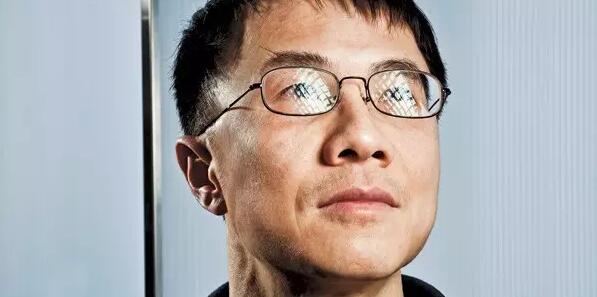The New York Times online edition recently pointed out that the United States has a dominant position in the field of artificial intelligence. Although there is still a certain gap between China and the United States in this field, with the rapid development of artificial intelligence technology in China, this gap is changing. It is getting smaller and smaller. The following is a summary of the article:
Robert O. Work, a senior defense official who was left by US President Trump as the Deputy Secretary of Defense, called them "artificial intelligence folks." Under this relaxed title, they have a serious task: these buddies are similar to a cabinet, and Walker will advise him when he seeks to reinvent war by introducing artificial intelligence into the battlefield.

Robert O. Work
In an interview, Walker recalled that he asked last spring, "You are the smartest guy in the field of artificial intelligence, right?" But they told him, "The smartest on Facebook and Google."
Today, they are also increasingly appearing in China. Artificial intelligence is widely regarded as a key factor in the next generation of war, and the United States no longer occupies a strategic monopoly of this technology.
As the Pentagon plans to introduce artificial intelligence into the military, Chinese researchers are also developing independently in this emerging field of technology. The surprising commercial development of Chinese companies in the field of artificial intelligence is reflecting this change.
For example, Microsoft researchers said last year that the company has developed software that is comparable to human speech understanding. Although they boast that the software is better than the products of American competitors, the celebrities in the field of artificial intelligence responsible for Baidu Silicon Valley Labs dismissed this. He stressed that Baidu achieved similar accuracy in Chinese two years ago.
In short, when the United States began to implement a new military strategy based on the assumption that it continues to dominate such technologies as robotics and artificial intelligence, the country is facing challenges from China.
Former US President Barack Obama’s Defense Minister Ashton B. Carter announced the “Third Offset†for the first time last year, which provides a competition with China and Russia. A plan to maintain a military advantage when it re-emerges.
In the 1960s, the United States occupied a military advantage by virtue of its leading position in nuclear weapons technology. In the 1970s, on the basis of new Silicon Valley technologies such as computer chips, this leading position shifted to the field of smart weapons. Today, American leaders plan to maintain this military advantage by vigorously developing artificial intelligence and automatically controlling weapons.
But the balance of global technological power is changing. From the 1950s to the 1980s, the United States has been carefully caring for its own advantages. In the field of computer and applied science and technology, the United States has been at the forefront of the world and has carefully maintained its leading position through military secrets and export controls.
In the late 1980s, the emergence of cheap and readily available microchips subverted the Pentagon's ability to control technological advances. Today, new technologies are increasingly coming from consumer electronics companies, not military and advanced corporate laboratories. In short, companies that produce the fastest-calculating computers now also produce gifts under the Christmas tree.
As consumer electronics manufacturing moves to Asia, Chinese companies and government laboratories have invested heavily in artificial intelligence.
Microsoft's senior artificial intelligence expert Lu Qi left Microsoft last month and joined Baidu as chief operating officer, highlighting China's progress in the field of artificial intelligence. Lu Qi will be responsible for Baidu's grand plan to become a global leader in artificial intelligence.

Lu Qi
Tencent, the developer of mobile app WeChat, has created an artificial intelligence lab and started investing in artificial intelligence companies in the United States.
China's rapid advancement in the field of artificial intelligence has led US military strategists and technologists to debate whether China is merely imitating advanced technology or engaging in independent innovation that will soon surpass the United States.
“Chinese leaders are increasingly thinking about how to ensure they are competitive in the next wave of technology,†said Adam Segal, an expert on emerging technology and national security at the US Council on Foreign Relations.
China Daily reported in August last year that China is already developing a cruise missile system with "high level" artificial intelligence.
The new system appears to be a response to a missile deployed by the US Navy to counter the increasing military influence of China in the Pacific region, expected to be deployed in 2018. This long-range anti-ship missile (LRASM) is described as a "semi-automatic" weapon.
Gas Generating Set,Stable Performance Gas Generator,Gas Generating Set,Continuous Running Generator
Shaoxing AnFu Energy Equipment Co.Ltd , https://www.sxanfu.com